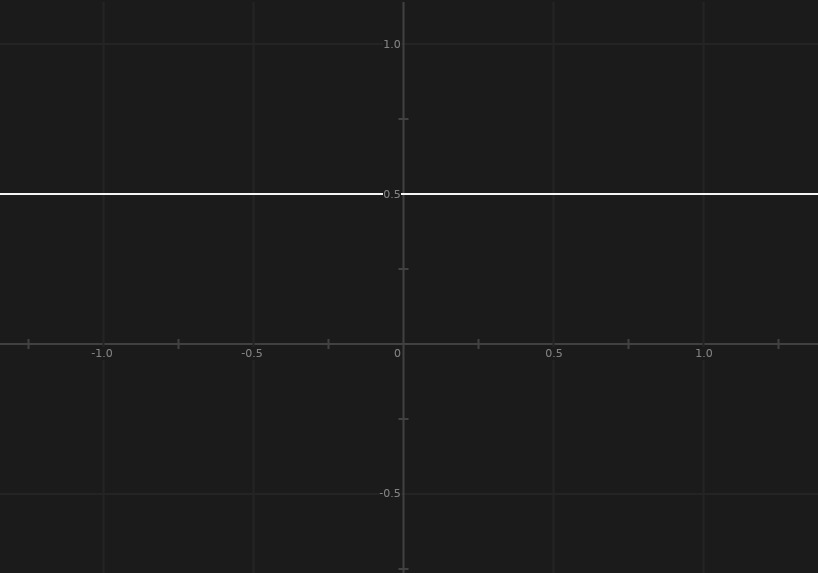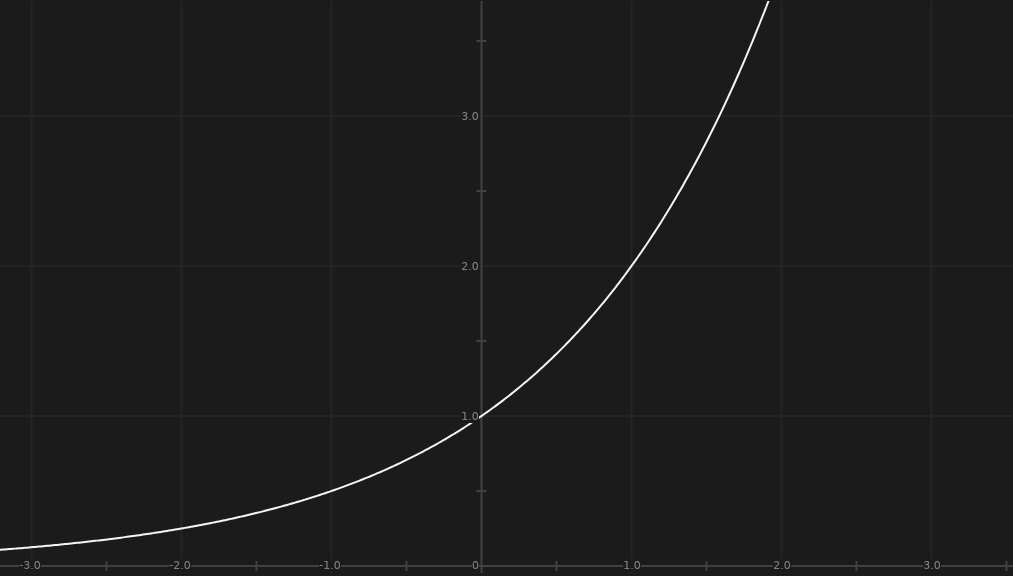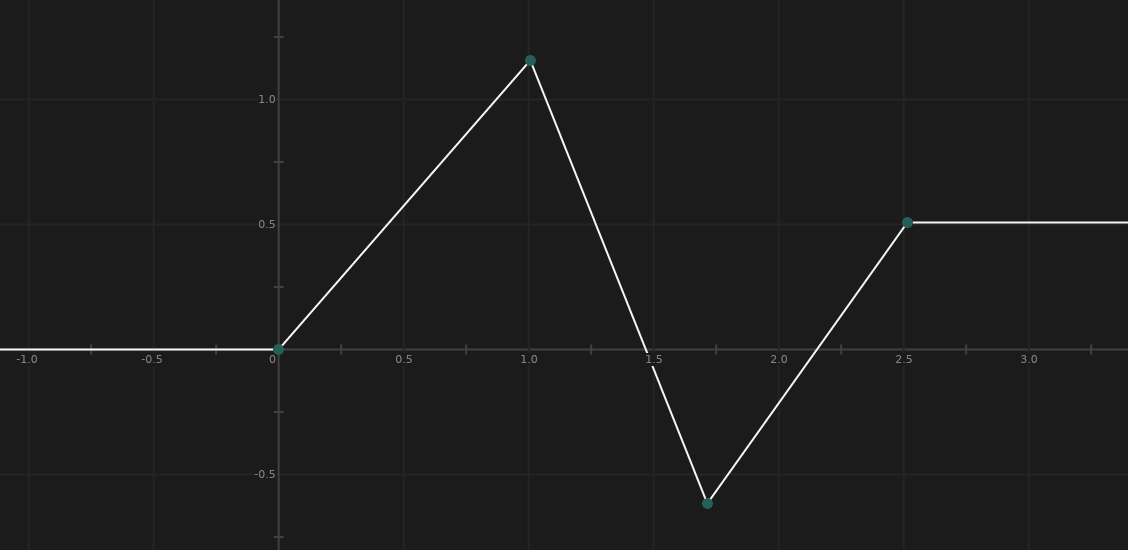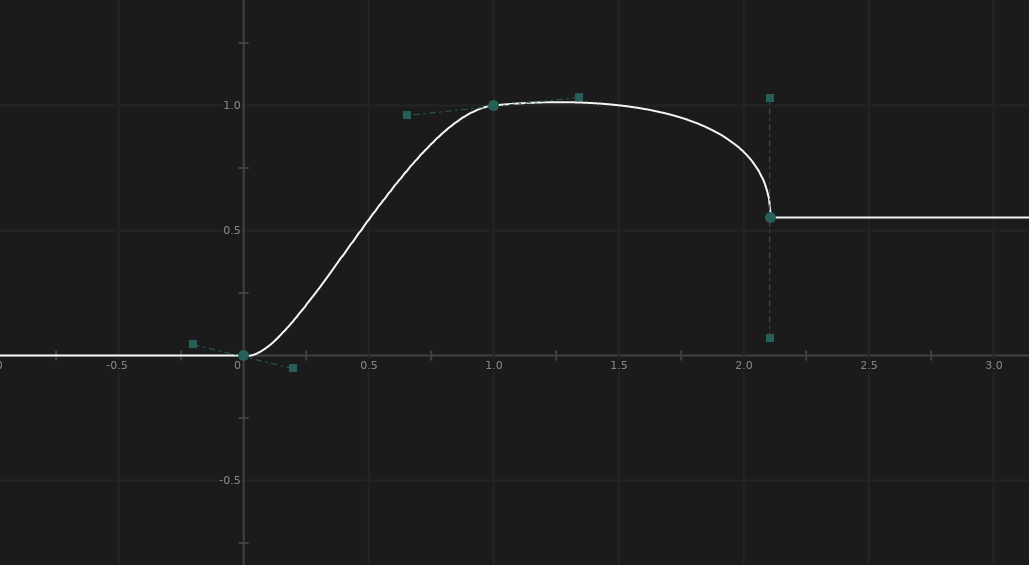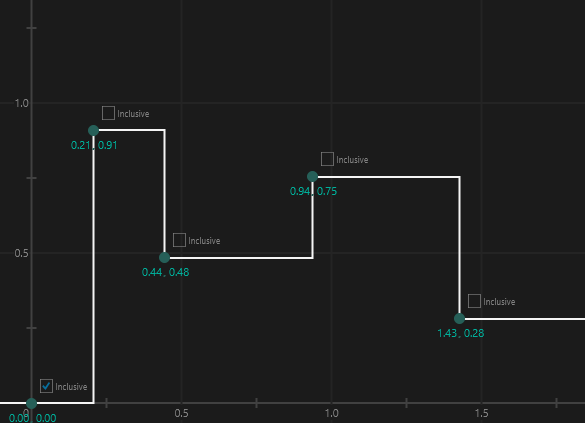Curve
A curve is a type of Evaluator representing a mathematical function transforming one value into another one. Grail’s curves operate on floating point numbers (R→R).
Each curve has to be informed which Context may be passed through it during evaluation. Contexts can take form of any built-in or user-defined data type.
A user can inherit from Curve class to create their own custom curves or they can make use of Grail’s built-in curve types.
Basic Curves
Let’s assume that x means input value.
Step Function
-
threshold -
beforeThresholdValue -
afterThresholdValue
This function returns afterThresholdValue if x is greater than threshold.
Otherwise returns beforeThresholdValue.
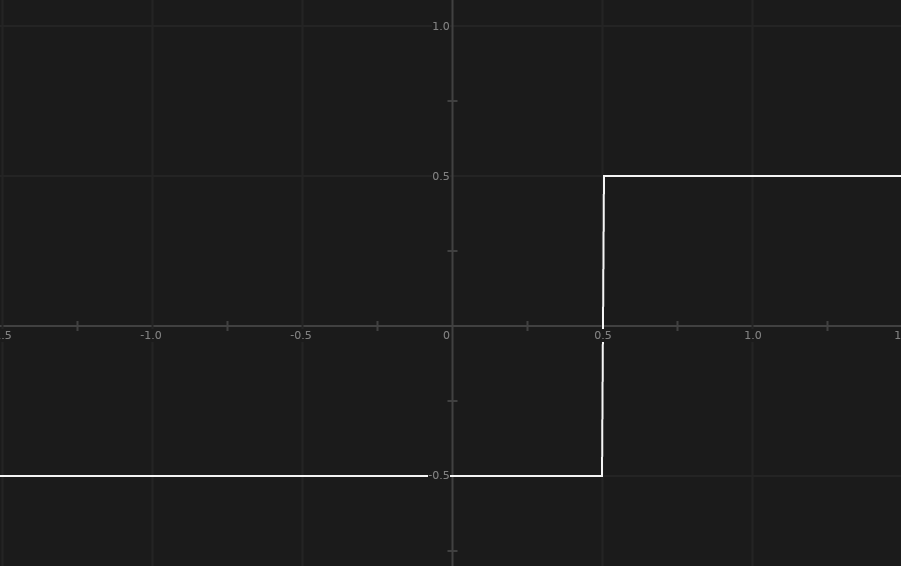
Linear Function
-
slope -
intercept
This functions returns result of operation slope * x + intercept.
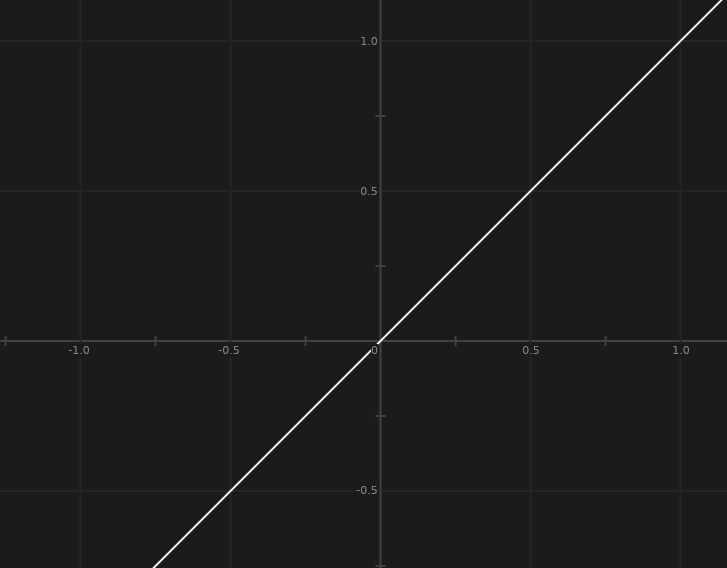
Power Function
-
exponent -
slope -
intercept
This function takes linear function and raises it to power determined by exponent
The result of linear function slope * x + intercept is lowerbound by 0.
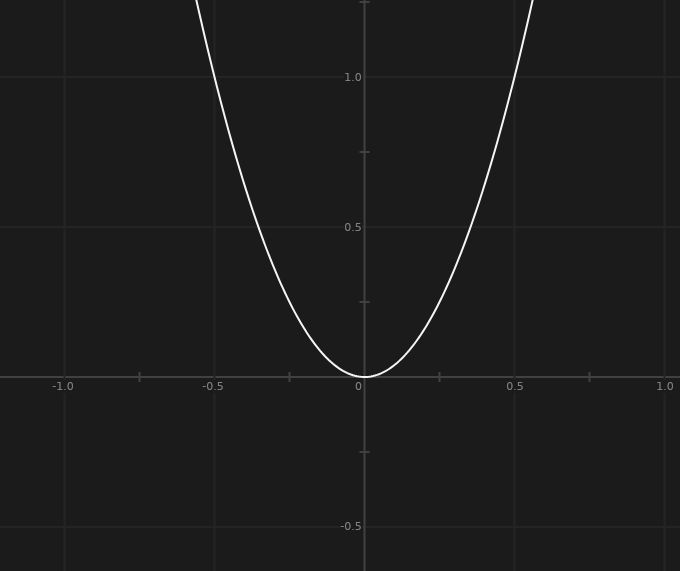
Sigmoid Function
-
slope -
threshold
Work in progress. One day it will become a properly working sigmoid function.
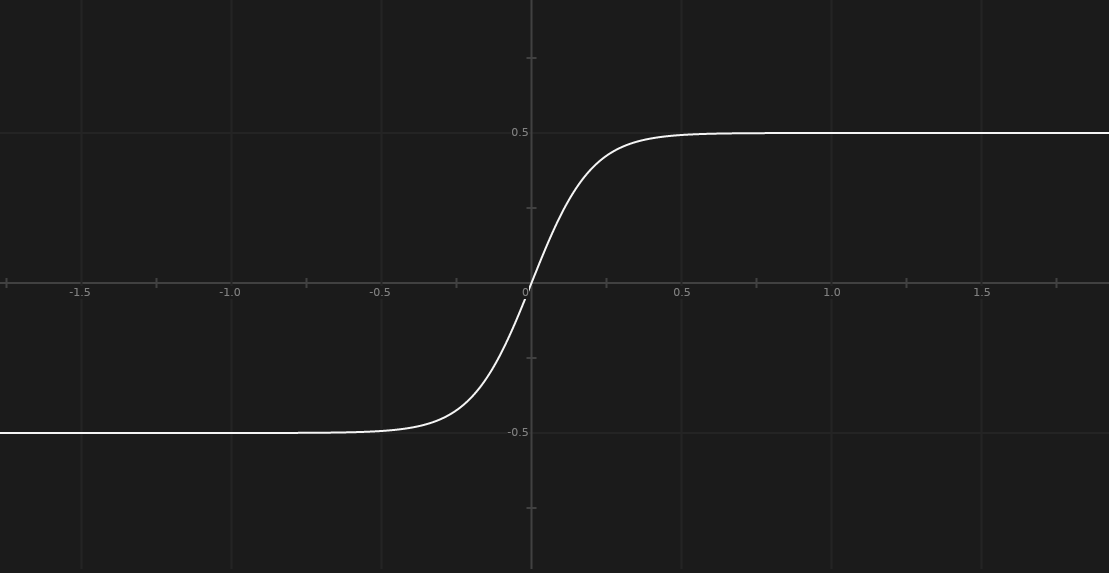
Bounded Curves
Lowerbound
Lowerbound curves cannot return result lesser than their lowerValue.
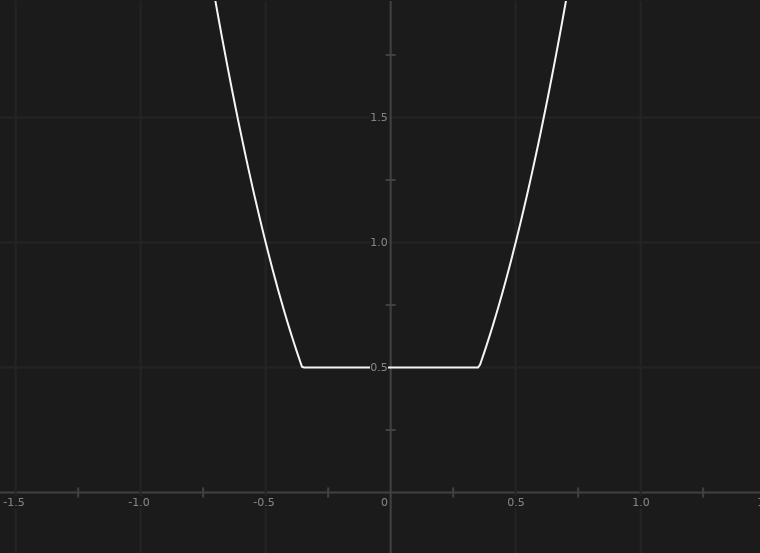
-
C++
-
C#
auto linearCurve = std::make_shared<LinearFunction<ContextType>(someConsideration, 1, 0);
auto lowerbound = std::make_shared<LowerBound<ContextType>>(linearCurve, 0); // linearCurve bounded to range <0;inf>var linearCurve = new LinearFunction<ContextType>(someConsideration, 1, 0);
var lowerbound = new LowerBound<ContextType>(linearCurve, 0); // linearCurve bounded to range <0;inf>Upperbound
Upperbound curves cannot return result greater than their upperValue.
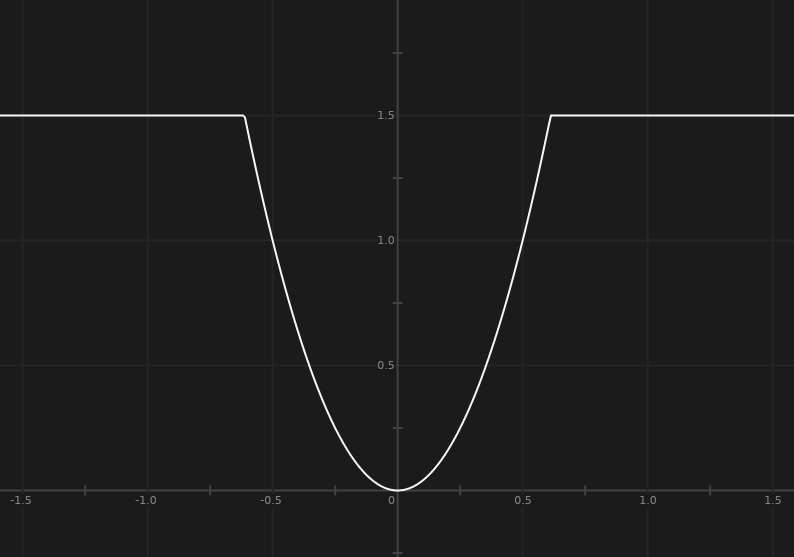
-
C++
-
C#
auto someConsideration = std::make_shared<SomeConsideration>();
auto upperbound = std::make_shared<UpperBound<ContextType>>(someConsideration, 1); // someConsideration bounded to range <-inf;1>var someConsideration = new SomeConsideration();
var upperbound = new UpperBound(someConsideration, 1); // someConsideration bounded to range <-inf;1>Double-Sided Bound
Double-Sided Bound curves cannot return results lesser than lowerValue and greater than upperValue.
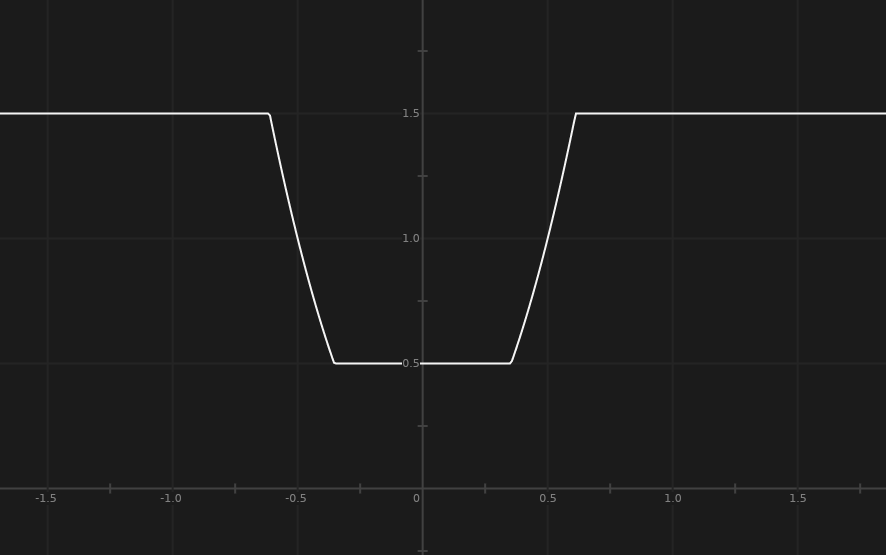
-
C++
-
C#
auto doubleBounded = std::make_shared<DoubleSidedBound<ContextType>>(aggregator, 0, 1); // aggregator bound to range <0;1>var doubleBounded = new DoubleSidedBound<ContextType>(aggregator, 0, 1); //aggregator bound to range <0;1>